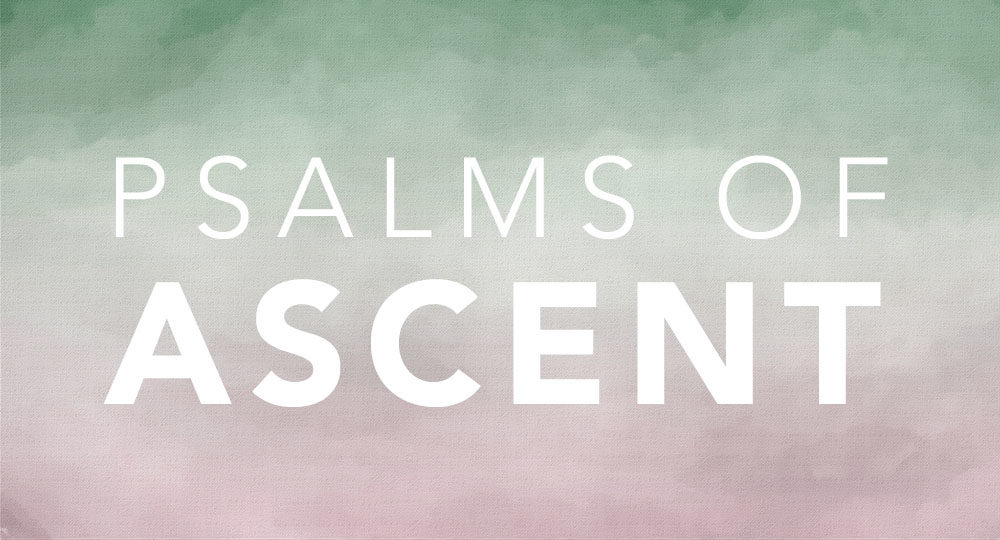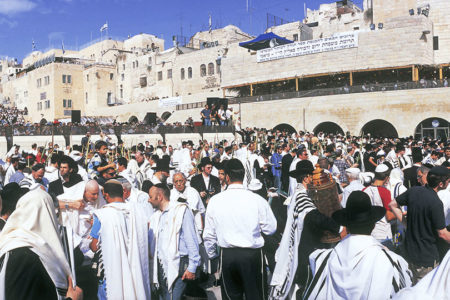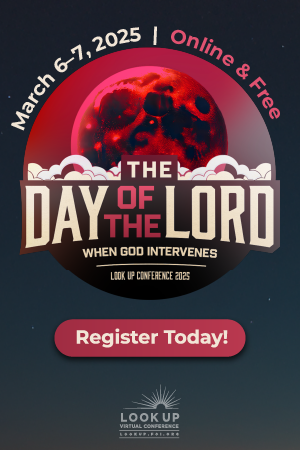Psalm 132: Our Dwelling
Psalm 132 is the longest of all the Songs of Ascents and focuses on worship, which the nation of Israel modeled after the experience of its greatest king and worship leader, David. Israel’s worship, like David’s, was intentional and purposeful.
This song tells of David’s (and Israel’s) relationship with God. The first stanza expresses David’s passion for the house of the Lord as an example for Israel to emulate:
Lᴏʀᴅ, remember David and all his afflictions; how he swore to the Lᴏʀᴅ, and vowed to the Mighty One of Jacob: “Surely I will not go into the chamber of my house, or go up to the comfort of my bed; I will not give sleep to my eyes or slumber to my eyelids, until I find a place for the Lᴏʀᴅ, a dwelling place for the Mighty One of Jacob” (vv. 1–5).
The song commemorates David’s aggressive pursuit of a place for God to dwell. Perceiving that his own house was glorious and the Ark of the Covenant resided in a mere tent, David became determined to build a house for the Lord.
God forbade it and promised instead to build an enduring house (dynasty) for David. So overwhelmed was he by God’s promise that David set out to find the place, draw the plans, and secure the materials so that his son Solomon could build the Temple.
Having heard this story about David for generations throughout the land (from Ephrathah to Jaar), the Israelites determined to enter the Lord’s dwelling and worship at His footstool (v. 7). David’s love for the Lord stimulated their desire to travel up to Jerusalem. They would retell their intentions and implore God to meet them there, singing, “Arise, O Lᴏʀᴅ, to Your resting place, You and the ark of Your strength” (v. 8).
These pilgrims anticipated obtaining the help of godly priests and hearing their fellow worshipers’ songs of joy. Their ascent to the Temple resembles our excitement of traveling to church on Sunday, knowing we will meet God and His people.
They anticipated meeting with the Lord because of their trust in His promise to David. The Lord promised David a posterity: If David’s sons remained faithful to God’s covenant with them, then His lovingkindness would not depart from them, and He would maintain their dynasty forever (v. 12).
Israel’s worshipers, as subjects of David, clung to this promise and worshiped boldly as “David’s sons.” This song encouraged them to enter God’s presence as extensions of David himself.
Perhaps this is similar to our bold approach to God as brothers and sisters of His Son (Heb. 2:10–11; 4:14–16).
The final stanza rejoices at having God’s earthly dwelling in the midst of the nation:
For the Lᴏʀᴅ has chosen Zion; He has desired it for His dwelling place: “This is My resting place forever; here I will dwell, for I have desired it. I will prepare a lamp for My Anointed. His enemies I will clothe with shame, but upon Himself His crown shall flourish” (Ps. 132:13–14, 17–18).
The God of all the earth prefers to dwell in Zion. Furthermore, He promises David’s ultimate Son: the Messiah. Wrote Bible commentator Allen P. Ross:
God also promised the appearance and crowning of His Anointed One, the Messiah (vv. 17–18)….The burning lamp is a figure from the furnishings of the tabernacle. Here it signifies the continuation of the Davidic dynasty….The “Anointed One,” first David, then his descendants, and eventually the Messiah (Christ) will be triumphant over His enemies.1
Today we should likewise rejoice, for the God of the universe resides within those whom He has redeemed through His Spirit. He “has blessed us with every spiritual blessing in the heavenly places in Christ” (Eph. 1:3) and endowed us with the power (Acts 1:8) and fruit (Gal. 5:22–23) of the Spirit, who will “guide [us] into all truth” (Jn. 16:13). What more could we ask for?
ENDNOTE
- Allen P. Ross, “Psalms,” The Bible Knowledge Commentary, ed. John F. Walvoord and Roy B. Zuck (Victor Books, Wheaton, IL: 1985), 1:888.





